
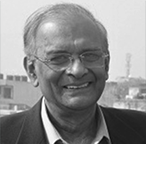

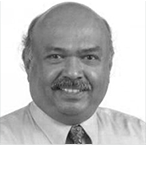
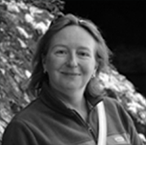
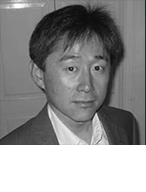
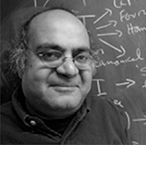


He received his M.Sc from Delhi University and Ph.D from Cornell University with Nobel Laureate Hans Bethe. After a short stint as a Research Associate at Brookhaven National Laboratory, Professor Ghatak joined the Indian Institute of Technology, Delhi in 1966. He retired as an Emeritus Professor of Physics at IIT Delhi in 2007.
He has won numerous awards and recognition for his research work. He was awarded the prestigious S. S. Bhatnagar Prize for Science and Technology – Physical Sciences of the Council of Scientific and Industrial Research in 1979. In 1995, he was elected Fellow of the Optical Society of America. He is the recepient of the Galileo Galilei Award of the International Commission for Optics in 1998. In 2003, he received the Esther Hoffman Beller Medal from the Optical Society of America "for outstanding contributions to optical science and engineering education" and the SPIE Educator Award in 2008 "in recognition of outstanding contributions to optics education". Professor Ghatak has written over 170 research papers and more than 20 books.
His research interests are in the fields of photonics and fiber optics.
Professor Brian Culshaw graduated from University College London with a First Class Honours Degree in Physics in 1966 and a PhD in Electrical Engineering in 1970. He has held positions at Cornell University (1970), Bell Northern Research, Ottawa, Canada (1971-1973), University College London (1974-1983) Stanford University (1982) and has been Professor of Electronics at Strathclyde University since September 1983 where he has set up the Optoelectronics Division within the Department of Electronic and Electrical Engineering and has acted as Vice Dean of the Faculty of Engineering.
Professor Culshaw is also a founding director of OptoSci Ltd. which was established in 1994 with the primary objective of exploiting innovative optical technologies developed within Strathclyde University. He has served as a Director of SPIE, the International Society for Optical Engineering based in Bellingham, Washington and is the 2007 President of the society.
Professor Culshaw's personal research activities have centred upon optical fibre sensor system and network studies and novel technologies for optical fibre instrumentation including pressure measurement systems, strain and temperature measuring systems, gyroscopes and structural assessment techniques. He has published in excess of 300 technical papers, several conference proceedings, 7 textbooks and a dozen patents.
Professor Asundi graduated from the Indian Institute of Technology, Bombay and received his Ph.D. from the State University of New York at Stony Brook. Following a brief tenure Virginia Tech., he joined the University of Hong Kong in 1983 where he was Professor till 1996. He is currently Professor and Deputy Director of the Advanced Materials Research Centre at the Nanyang Technological University in Singapore. He is Editor of Optics and Lasers in Engineering and on the Board of Directors of SPIE, the international society of Optical Engineers. He is a fellow of the Institute of Engineers, Singapore and SPIE. He also holds advisory professorial appointments at Tongji University, Shanghai University and Harbin Institute of Technology, China. He is also Chairman of the Asian Committee on Experimental Mechanics and the Asia Pacific Committee on Smart and Nano Materials both of which he co-founded. Prof. Asundi's primary research interests are in the field of photomechanics with specific applications in the fields of micro and nano mechanics, biomechanics, chemical sensing, non-destructive testing and smart structures.
Sile Nic Chormaic completed her B.Sc. with 1st Class Hons. in Experimental and Mathematical Physics and M.Sc. at St. Patrick's College Maynooth, Ireland. She did her PhD in Physics at Université Paris-Nord, France. She was a Lise Meitner Fellow and Postdoctoral Researcher, University of Innsbruck, Austria; Visiting Researcher at Max Planck Institute for Quantum Optics, Germany, Adjunct Associate Professor at OIST Graduate University, Japan and is presently Associate Professor and PI at OIST Graduate University in Japan. She is also the Hon. Assoc. Professor at University Kwa-Zulu Natal, South Africa.
She has won several awards such as the President's Award for Top Undergraduate in Science in 1990, Science Foundation Ireland Principal Investigator Award between 2003 and 2008 and the President's Award for Research on Innovative Forms of Teaching and Learning in 2007. She has numerous publications to her name.
Her research interests include optical trapping, manipulation and imaging, cavity and sensing and neutral atoms for quantum technologies.
Professor Kono completed his BS and MS in Applied Physics from the University of Tokyo in 1990 and 1992. He completed his PhD in Physics at the State University of New York in Buffalo in 1995. For two years, he was Visiting Postdoctoral Researcher in condensed matter physics at the University of California, Santa Barbara. In 1997, he was a Hansen Experimental Physics Laboratory Fellow at Stanford University. Later, he became Assistant Professor, Department of Electrical and Computer Engineering at Rice University. He is presently a Professor in the Department of Electrical and Computer Engineering and the Department of Physics and Astronomy at Rice University.
Professor Kono completed his BS and MS in Applied Physics from the University of Tokyo in 1990 and 1992. He completed his PhD in Physics at the State University of New York in Buffalo in 1995. For two years, he was Visiting Postdoctoral Researcher in condensed matter physics at the University of California, Santa Barbara. In 1997, he was a Hansen Experimental Physics Laboratory Fellow at Stanford University. Later, he became Assistant Professor, Department of Electrical and Computer Engineering at Rice University. He is presently a Professor in the Department of Electrical and Computer Engineering and the Department of Physics and Astronomy at Rice University.
Kono’s current research interests include optical studies of low-dimensional systems; spintronics and quantum information processing; nonlinear, ultrafast, and quantum optics in solids; phenomena in ultrahigh magnetic fields; and terahertz phenomena in semiconductors.
Professor Lakshminarayanan after graduating from high school in California, went to Chennai, India where he earned a bachelors and masters degree in physics and math. After spending a year at the University of Oregon, he moved to the University of California at Berkeley, where he received his Ph.D. After speding time in the medical optics industry and at the University of Missouri, he moved to the University of Waterloo in 2006. He has been a Director of the Optical Society of America and is a founding member of the United Nations Educational, Scientific and Cultural Organization (UNESCO) project on Active Learning in Optics and Photonics.
He has received numerous accolades and honours some of which are: SPIE Educator Award in 2011, the OSI Medal for distinguished contributions to optics from the Optical Society of India in 2006 and the Merck, Sharp and Dohme Award in 1981. He was elected to be a Fellow of the American Physocal Society in 2010, of the American Association for the Advancement of Science in 2007 and and of the Optical Society of India in 2006.
His research intersts are ophthalmic and visual optics, optical system analysis, fiber optics and aberration theory.
An engineer from the Louvain School of Engineering and a PhD in applied physics from Stanford University, Jean-Luc Doumont is the lead instructor for most training projects at Principiae, an organization devoted to trainig professionals in effective communication and statistical thinking. An articulate, entertaining, and thought-provoking presenter, Jean-luc is a popular instructor and invited speaker worldwide. Over the years, he has given hundreds of talks and workshops, in English, French, Dutch, and Spanish, at a wide range of companies, top-ranked universities, research laboratories, and conferences. Jean-luc is a founding partner at Principiæ, a lecturer with SPIE and OSA, and the author of ‘Trees, maps, and theorems’, a book on "effective communication for rational minds."
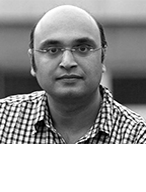
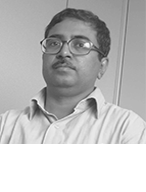
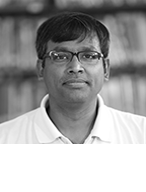
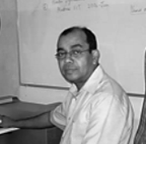
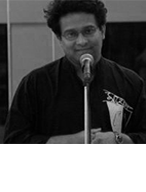
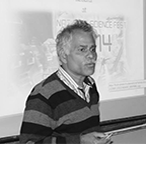
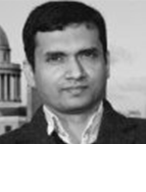
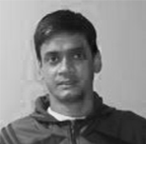

Communicating research work is as important as carrying it out. Strong oral presentation skills are a valuable asset and the key to success for engineers, scientists, and other professionals, yet many speakers lack them. This workshop, to be conducted by Jean-Luc Doumont, will focus on a systematic way to prepare and deliver presentations.
Papers are one of the few deliverables of the work of researchers. Well-designed, they efficiently allow each reader to learn only what he or she needs to. Poorly designed, by contrast, they confuse readers, fail to prompt decisions, or remain unread. Based on Dr Doumont's book Trees, maps, and theorems about “effective communication for rational minds,” the lecture shows how to structure scientific papers, theses, and technical reports effectively at all levels to get the readers' attention, facilitate navigation, and, in this way, get the message across optimally.
Abstract Submission:
Article Submission:
Curriculum Vitae Submission:
*All participants are requested to submit their manuscripts / articles, abstracts by 25th May.
Publicity and Media:
Umang Jain
Ph: +91-9679889954
Email: uj13ms040@iiserkol.ac.in
Prashant Rawat
Ph: +91-9568868307
Email: pr13ms043@iiserkol.ac.in
VISA Services
Shubham Sharma
Ph: +91-7407845153
Email: ss13ms110@iiserkol.ac.in
Faculty Advisors
Ayan Banerjee (about)
Nirmalya Ghosh(about)
Prasanta K. Panigrahi(about)
Conference Co-ordinator:
Amit Kumar Pandey
Ph: +91-8981130590
+91-9564683793
Email: amitkp.iiser@gmail.com
Webmaster:
Roopam K. Gupta
Ph: +91-9679773813
Email: roopamkumar@gmail.com
Designing:
Balraj Rathod
Ph: +91-9769977997
Email: br12ms067@iiserkol.ac.in
*Please feel free to contact any of us for any kind of query.
General Information**
The Registration fee covers:
1. Four Night and Three day Accomodation at the Venue.
2. Conference sessions and poster sessions.
3. Welcome Reception.
4. Other networking events.
5. Proceedings.
Registration Process
The registration process is as follows:
After you are done with the payment please register Here to confirm your details with us.***
**Refund policy: Registration will not be cancelled under any circumstances and the registration fee is strictly non-refundable
***Note that the registration stand cancelled if you do not register with the link given above.